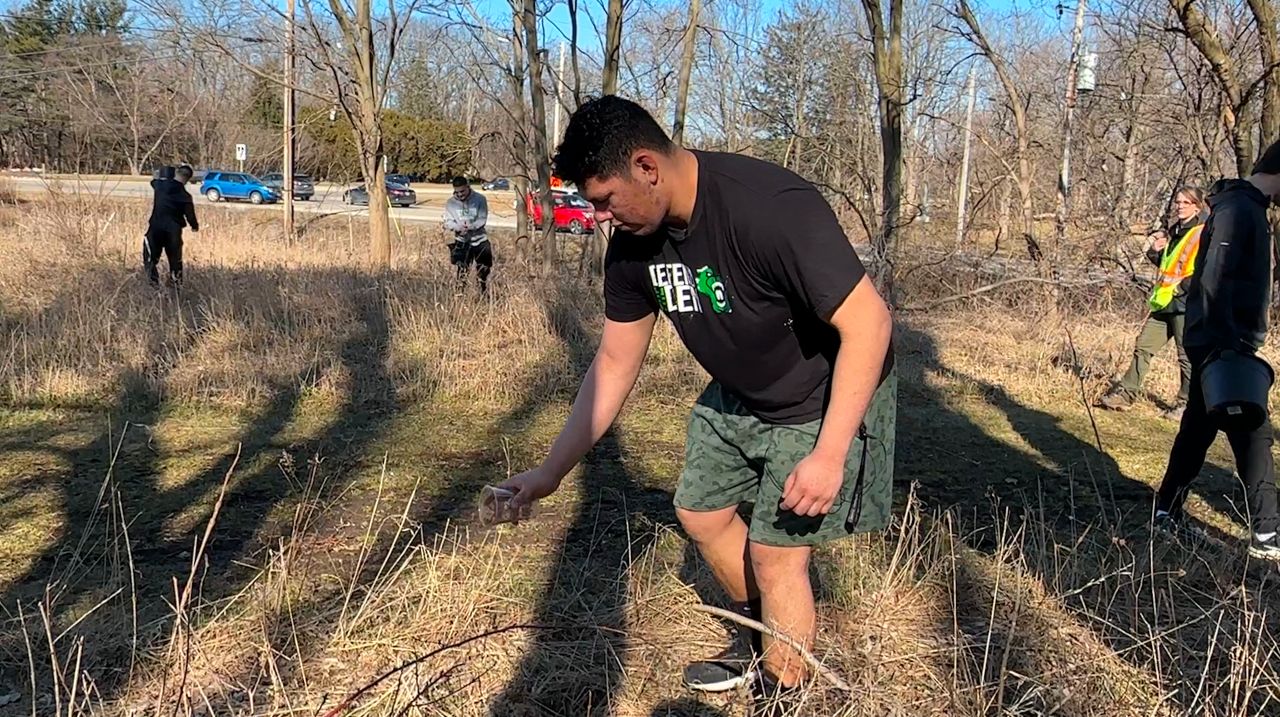SOMERS, Wis. — The University of Wisconsin-Parkside is teaming up with the Root-Pike Watershed Initiative Network (WIN) to breathe new life into the university’s cross-country trail.
The Root-Pike WIN is a nonprofit that works to restore, protect and sustain the Root Pike basin watersheds, which sustains forest, wetlands and more in Racine and Kenosha counties. It includes the Pike River, Root River, Oak Creek, Pike Creek and Wind Point Watershed.
Jason Guaderrama is a senior on UW-Parkside’s wrestling team. He and his teammates are helping plant native plant species along the trail.
“This is a very essential part of training for many athletes, and for many people who use it recreationally, and we are just trying to maintain a lot of the native growth,” said Guaderrama.
Guaderrama said he takes pride in helping protect the environment. He said he’s learned a lot through this.
“Invasive species can be very detrimental to a lot of ecosystems, to a lot of food chains, things like that, so it’s really important that we continue to plant native seeds like we are doing here,” he said. “Native flowers, things like that. Not only to boost the physical nature and the apparent beauty of the place, but to maintain a healthy ecosystem.”

This cross-country trail used to be farmland. It’s also part of the Pike River Watershed.
Laura Buska manages the Respect our Waters Program for the Root-Pike WIN. She said restoring this area to its natural habitat is crucial.
“Native plants are incredibly important to make sure that we have them in our ecosystem,” said Buska. “They provide sustenance for our native pollinators, which are three to four times better at pollinating our food crops than honey bees. It’s also incredibly important for stormwater infiltration.”
Guaderrama said planting is a way to say thank you to the community that has supported their team.
“Having the unity and the strength in numbers is really awesome, and the more we are able to help, the more we feel connected to our community, and the more support we are able to give back,” he said. “Especially something like this that we share with fellow athletes, and we have had several workouts on. It’s just really to give back to our campus.”
He said he looks forward to seeing how the seeds planted today grow along the trail in the future.



